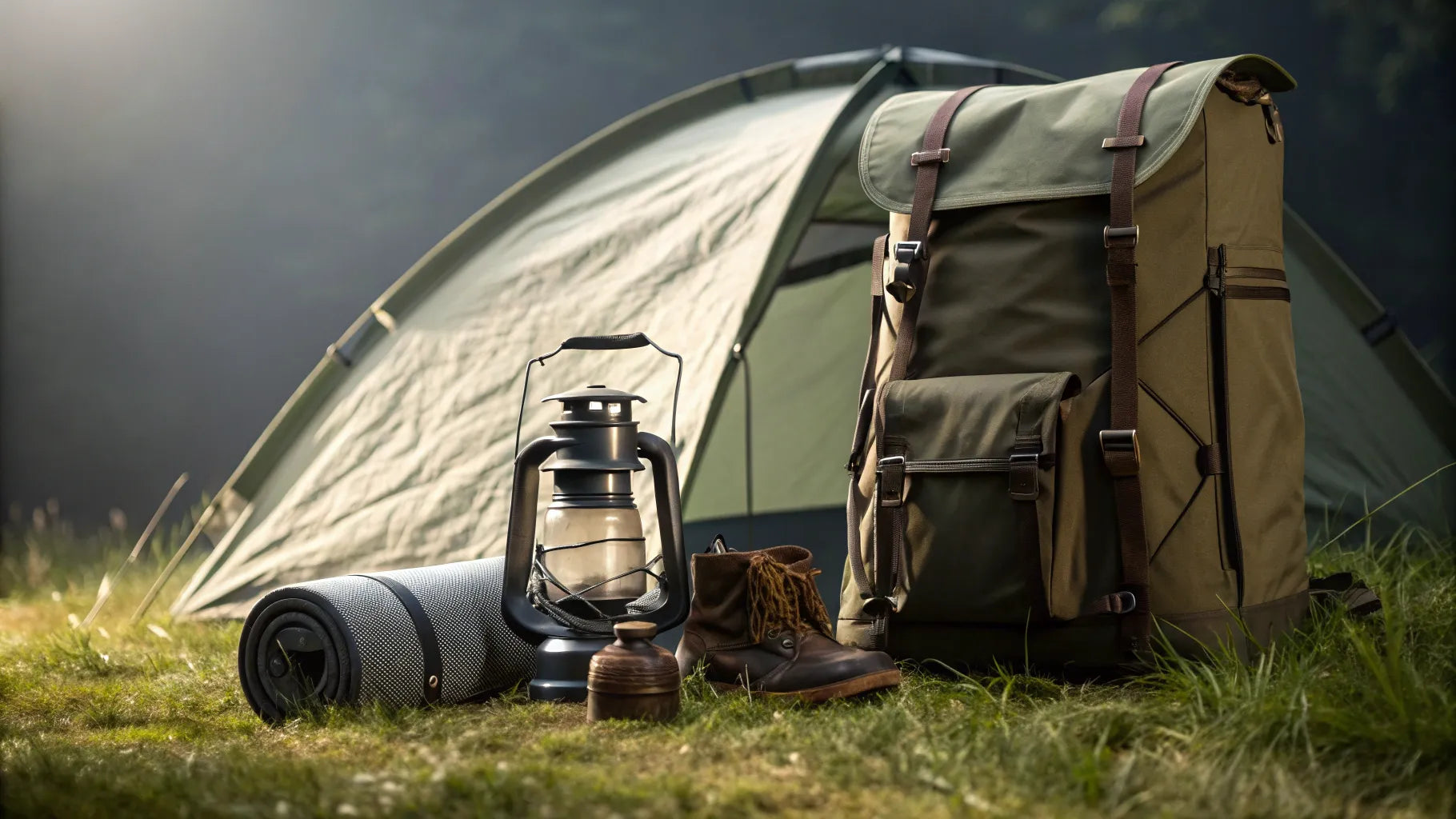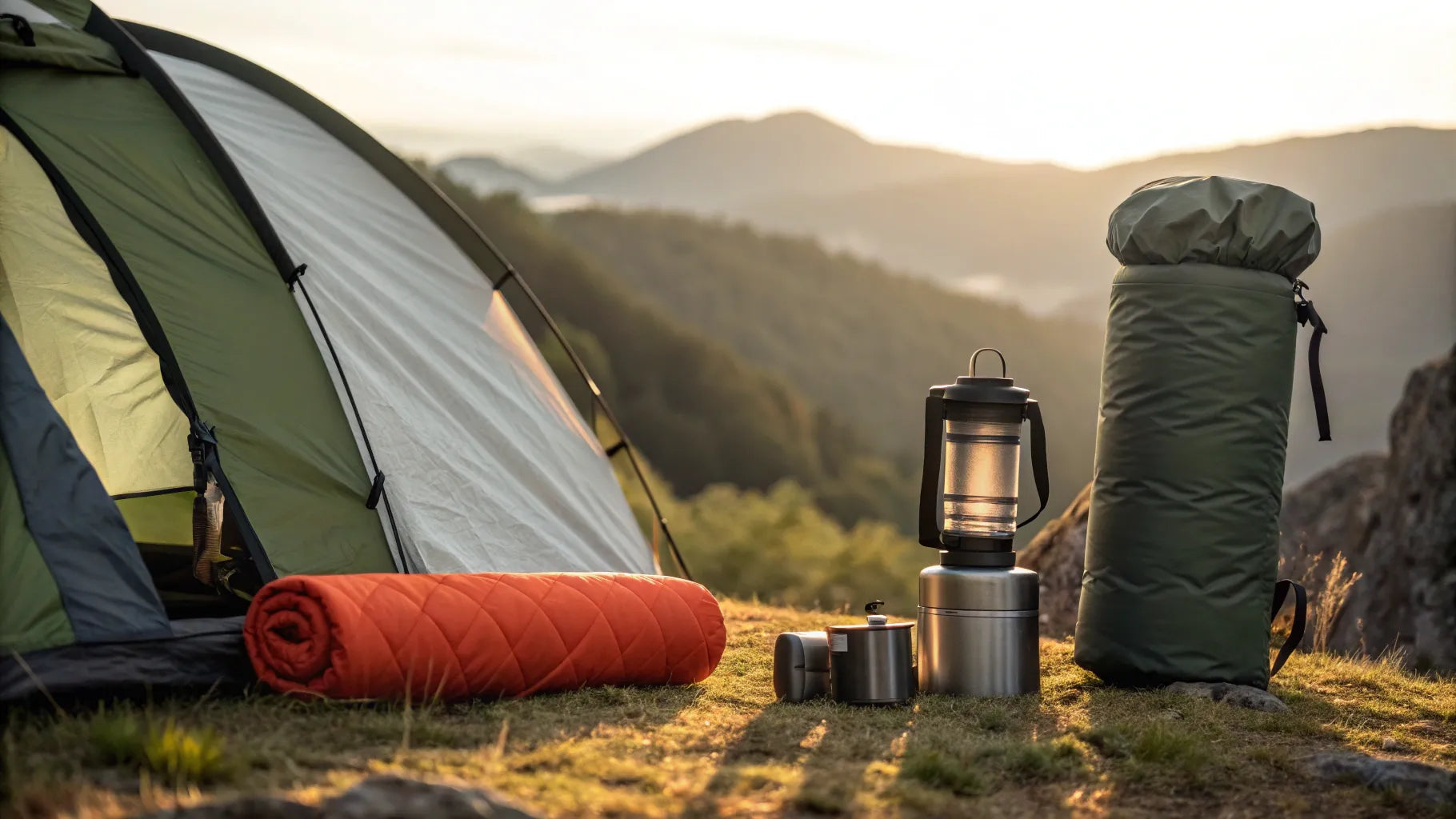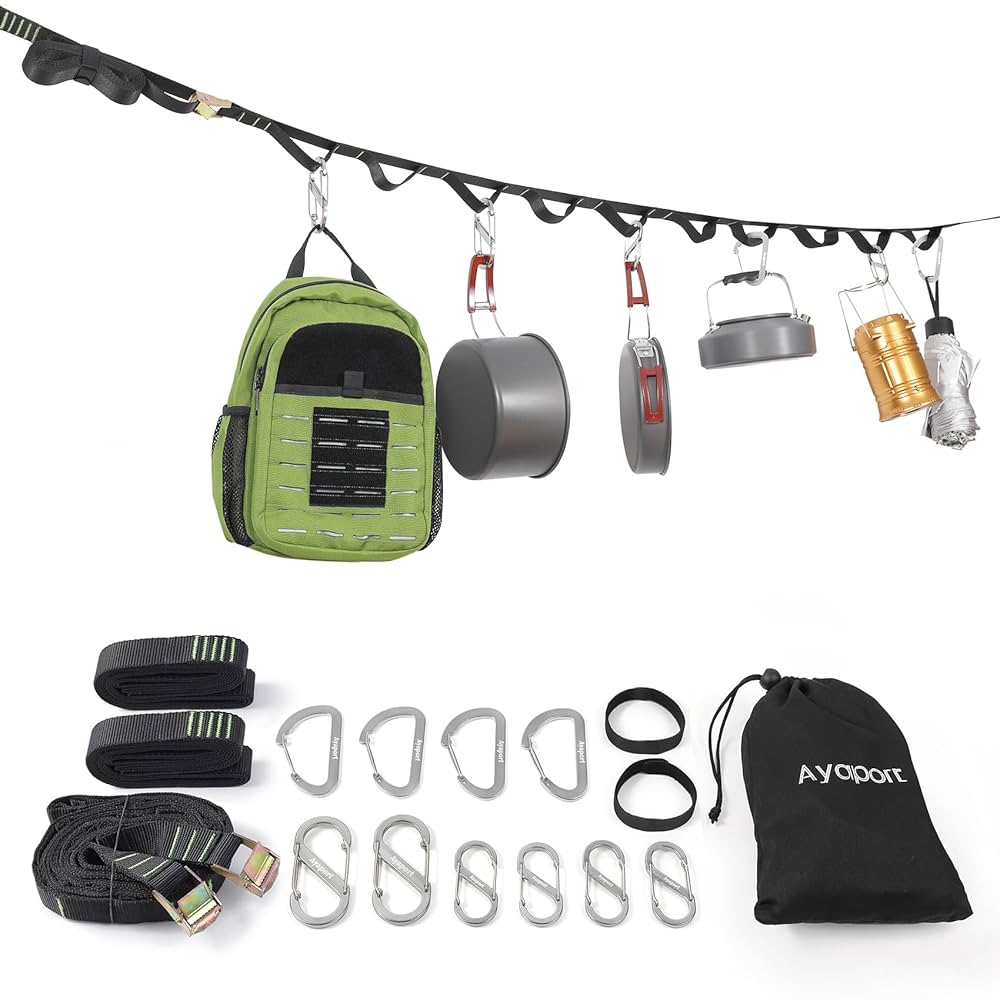Planning a tent camping trip? You want to make sure you have everything you need to stay comfortable, safe, and ready for any surprise the outdoors might throw at you.
Missing just one important item can turn your adventure from fun to frustrating. Imagine sitting around the campfire wishing you had packed that one essential gear! In this post, you’ll discover the must-have items that will make your tent camping experience smooth and enjoyable.
Keep reading—your perfect camping trip starts here.

Credit: www.battlbox.com
Choosing The Right Tent
Picking the right tent is key for a good camping trip. Your tent keeps you safe and comfortable outside.
Think about where you will camp and how many people will stay inside. This helps find the best tent for you.
Tent Types And Sizes
Tents come in many shapes and sizes. You can choose a simple one or one with many rooms.
Consider how many people will sleep in the tent. Also, think about space for gear.
- Backpacking tents are small and light for easy carrying.
- Family tents are bigger and have more space inside.
- Dome tents are easy to set up and stable in wind.
- Cabin tents offer tall ceilings and stand-up space.
Weather Considerations
Look at the weather where you will camp. Different tents work better in different weather.
Some tents protect you from rain, wind, or cold better than others.
- Three-season tents work for spring, summer, and fall.
- Four-season tents are strong for winter and heavy snow.
- Rainflies help keep water out during rain.
- Good ventilation reduces inside moisture and heat.
Setup And Portability
Think about how easy the tent is to set up. Quick setup saves time and stress.
Also, check how heavy and big the tent is when packed. Light tents are better for hiking.
- Pop-up tents open fast and need little effort.
- Freestanding tents do not need stakes to stand.
- Look for tents with lightweight poles and bags.
- Practice setting up your tent before the trip.
Sleeping Gear Essentials
Good sleeping gear is important for a great tent camping trip. It keeps you warm and comfortable at night.
Choosing the right gear helps you rest well and enjoy your outdoor adventure.
Sleeping Bags And Pads
Sleeping bags protect you from the cold and damp ground. Pick one that fits the weather you expect.
Sleeping pads add cushioning and insulation under your sleeping bag. They make hard ground softer.
- Choose sleeping bags rated for the temperature you will face
- Look for sleeping pads that are lightweight and easy to carry
- Inflatable pads provide more comfort but weigh more
- Foam pads are durable and simple to use
Pillows And Blankets
Camping pillows give your neck support for better sleep. They are smaller than home pillows.
Blankets add extra warmth on cold nights. Choose blankets that dry quickly if they get wet.
- Use compact pillows to save space in your pack
- Bring extra blankets for chilly weather
- Consider blankets made of fleece or wool for warmth
- Inflatable pillows are light and easy to carry
Additional Comfort Items
Small extras can make your sleep more comfortable. These include eye masks and earplugs.
Other items like sleeping bag liners can add warmth and keep your bag clean.
- Eye masks block light for better rest
- Earplugs reduce noise from nature or campers
- Sleeping bag liners add an extra layer of warmth
- Bring a small repair kit for your sleeping pad
Cooking And Food Supplies
Camping in a tent means you need the right cooking and food supplies. These supplies help you cook meals and store food safely.
Good preparation makes your camping trip more fun and comfortable. Let’s look at some must-have items for cooking and food storage.
Portable Stoves And Fuel
Portable stoves let you cook hot meals quickly at your campsite. They are easy to carry and set up.
Choose the right fuel for your stove. Common types include propane, butane, and white gas. Each type works best in different weather.
- Propane stoves are easy to use and light up fast
- Butane works well in warm weather but not in cold
- White gas burns hot and works well in all weather
- Always carry extra fuel for longer trips
Cookware And Utensils
Bring cookware that is lightweight and durable. Look for pots and pans made for camping use.
Utensils like spoons, forks, and knives are important. Include a spatula and tongs for easy cooking.
- Use non-stick pots and pans for easy cleaning
- Choose foldable or compact utensils to save space
- Bring a cutting board for food prep
- Carry a small dish soap and sponge to clean cookware
Food Storage Solutions
Keep your food fresh and safe from animals. Use containers that seal well and are easy to carry.
Coolers and airtight bags protect food from heat and bugs. Label your food to avoid mix-ups.
- Use a sturdy cooler with ice packs for perishables
- Pack dry foods in zip-top bags or airtight containers
- Store food in sealed containers to keep insects out
- Use a bear-proof container if camping in bear country

Credit: www.usatoday.com
Lighting And Power
Good lighting and power are important for safe and fun tent camping. They help you see at night and keep your devices charged.
Choosing the right tools makes your camping easier and more comfortable after dark.
Lanterns And Headlamps
Lanterns light up your whole tent or campsite. They give soft, wide light that helps you move safely.
Headlamps keep your hands free. They shine light where you look and are great for hiking or cooking at night.
- Lanterns: use LED bulbs for bright, long-lasting light
- Headlamps: choose models with adjustable brightness
- Both should be lightweight and easy to carry
Batteries And Chargers
Extra batteries keep your lights working all night. Bring the right size for your devices.
Portable chargers help power phones and small gadgets. They can be charged before your trip and used anywhere.
- Bring spare AA or AAA batteries for lanterns and headlamps
- Use USB power banks to charge phones and small electronics
- Check battery life before you leave
Solar And Portable Power
Solar panels collect energy from the sun during the day. They can charge batteries and devices without electricity.
Portable power stations store energy and provide outlets for many devices. They work well for longer trips or larger groups.
- Choose solar panels that are lightweight and foldable
- Check the wattage to match your power needs
- Portable power stations offer USB and AC outlets
Clothing And Footwear
Packing the right clothing and footwear is key for tent camping. Your clothes keep you warm and comfortable.
Good shoes protect your feet and help you walk safely on rough ground.
Layering For Weather
Layering clothes helps you stay warm or cool. You can add or remove layers as the weather changes.
Start with a base layer that moves sweat away from your skin. Add a middle layer for warmth. Use an outer layer to block wind and rain.
- Base layer: moisture-wicking shirts and leggings
- Middle layer: fleece or wool sweaters
- Outer layer: windproof and waterproof jackets
Waterproof And Durable Gear
Choose clothes made from waterproof and tough materials. These protect you from rain and rough use.
Waterproof pants and jackets keep you dry. Durable fabrics last longer and resist tears.
- Waterproof jackets with sealed seams
- Durable hiking pants with reinforced knees
- Quick-drying socks and gloves
Footwear Choices
Pick shoes that fit well and protect your feet. Hiking boots are best for rough trails.
Bring extra socks to keep your feet dry and prevent blisters. Avoid cotton socks because they stay wet.
- Waterproof hiking boots for wet areas
- Light trail shoes for easy walking
- Extra pairs of moisture-wicking socks
Safety And Navigation
Camping in a tent means you need to be ready for anything. Safety and navigation are very important. They help you avoid dangers and find your way.
Having the right tools can make your trip safe and fun. You should always bring items that help you in emergencies and guide you on trails.
First Aid Kits
A first aid kit treats small injuries quickly. Cuts, scrapes, or insect bites can happen while camping. Having a kit nearby helps you avoid infections.
Your first aid kit should have bandages, antiseptic wipes, and pain relievers. Also include tweezers and allergy medicine if needed.
- Assorted bandages
- Antiseptic wipes and cream
- Pain relievers like ibuprofen
- Tweezers and scissors
- Allergy medication
- Medical tape
Maps And Gps Devices
Maps and GPS devices help you find your way. Trails and campsites can be confusing. These tools keep you from getting lost.
Carry a detailed paper map and a compass as backup. GPS devices work well but need batteries. Always check your route before hiking.
- Topographic maps of the area
- Compass for direction
- Handheld GPS device
- Extra batteries or power bank
Emergency Tools
Emergency tools help you survive in tough situations. They can signal for help or fix gear. These tools are small but very useful.
Include a whistle to call for help and a multi-tool for fixing gear. A flashlight and fire starter are also important for emergencies.
- Whistle for signaling
- Multi-tool with knife and pliers
- Flashlight with extra batteries
- Waterproof matches or fire starter
- Emergency blanket
Personal Care Items
Camping in a tent means you need to take care of yourself outdoors. Personal care items keep you clean and healthy during your trip.
Bringing the right items helps you feel fresh and protects you from bugs and sun. Pack smart to enjoy your time in nature.
Hygiene Products
Staying clean while camping prevents illness and makes you comfortable. Pack travel-size soap, toothbrush, toothpaste, and wipes.
Don’t forget hand sanitizer and toilet paper. Wet wipes are handy for quick cleaning without water.
- Travel-size soap or body wash
- Toothbrush and toothpaste
- Wet wipes and hand sanitizer
- Toilet paper or tissues
- Small towel or washcloth
Insect Repellents
Insects can ruin your camping trip. Use insect repellent to keep mosquitoes and ticks away.
Choose a repellent with DEET or natural oils. Also, bring bug spray for your clothes and tent.
- Insect repellent spray or lotion
- Bug spray for clothes and gear
- Insect bite relief cream
- Wear long sleeves and pants
Sun Protection
The sun can cause burns and heat problems. Use sunscreen to protect your skin.
Bring a wide-brim hat and sunglasses for extra protection. Apply sunscreen often, especially if you sweat.
- Sunscreen with SPF 30 or higher
- Wide-brim hat
- Sunglasses with UV protection
- Lip balm with SPF
Camping Comforts
Camping can be fun, but comfort makes it better. Having the right items helps you relax.
Simple comforts turn a basic trip into a cozy experience outdoors. Prepare for comfort before you go.
Chairs And Tables
Chairs and tables create a good place to sit and eat. Look for lightweight and foldable options.
These items make meals and social time easier. Choose sturdy chairs with good support.
- Portable camping chairs with cup holders
- Foldable tables for cooking and eating
- Compact stools for small spaces
- Lightweight materials for easy carrying
Shelters And Tarps
Shelters and tarps protect you from rain and sun. They keep your camping area dry and cool.
Use a tarp as extra ground cover or overhead shade. Shelters add space for gear and relaxing.
- Waterproof tarps for ground or overhead use
- Pop-up shelters for quick setup
- Extra stakes and ropes for secure anchoring
- UV-resistant materials to block sun
Entertainment And Extras
Bring small games and books for fun during downtime. Entertainment helps pass time comfortably.
Extras like lanterns and blankets improve comfort. Think about what will make your camp more enjoyable.
- Portable card or board games
- Books or e-readers with saved reading
- Battery-powered lanterns or string lights
- Warm blankets or extra pillows

Credit: www.battlbox.com
Frequently Asked Questions
What Are Essential Items For Tent Camping?
Essential items include a quality tent, sleeping bag, sleeping pad, and a camping stove. Don’t forget a first-aid kit, flashlight, and multi-tool. These items ensure comfort and safety during your camping adventure. Proper preparation makes your experience enjoyable and stress-free.
Always check the weather conditions before packing to ensure all necessary gear is included.
How Do I Choose A Camping Tent?
Choose a tent based on the number of campers and weather conditions. Look for a durable, waterproof material. Ensure it has proper ventilation and easy setup. Consider the tent’s weight and packed size for portability. A quality tent enhances comfort and protection against the elements, ensuring a pleasant camping experience.
What Food Should I Pack For Camping?
Pack non-perishable, easy-to-cook foods like canned goods, pasta, and oatmeal. Bring snacks like nuts and dried fruits. Consider meals that require minimal cooking, such as instant soups. Plan meals ahead to ensure variety and nutrition. Don’t forget a portable stove or grill for cooking, and always store food securely.
How Do I Stay Warm When Camping?
To stay warm, layer clothing and use a sleeping bag rated for the temperatures you’ll encounter. Insulate yourself from the ground with a sleeping pad. Wear a hat and gloves, and keep dry to maintain body heat. A hot drink or meal before bed can also help you stay warm overnight.
Conclusion
Packing the right items makes tent camping safe and fun. A good tent, sleeping bag, and light source are essential. Don’t forget food, water, and clothes for all weather. Being prepared helps you enjoy nature without worry. Simple gear keeps your trip smooth and comfortable.
Remember, less stress means more adventure. Happy camping!

